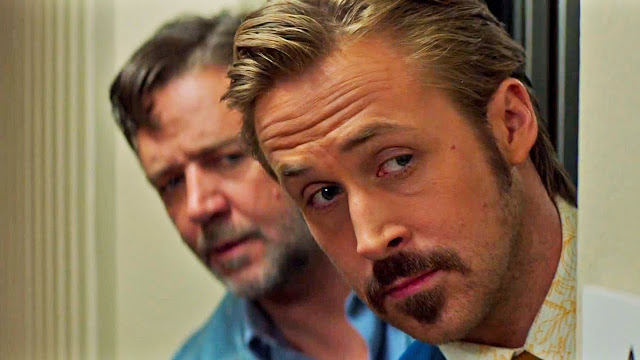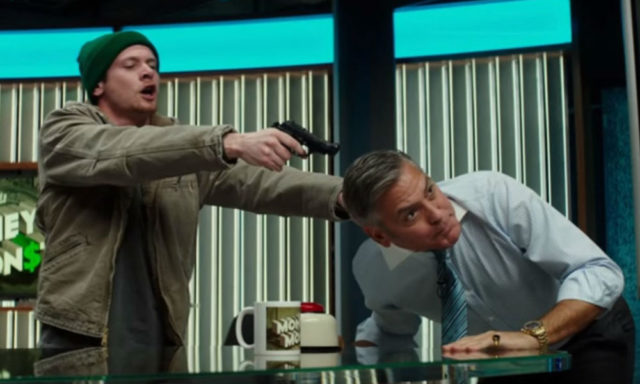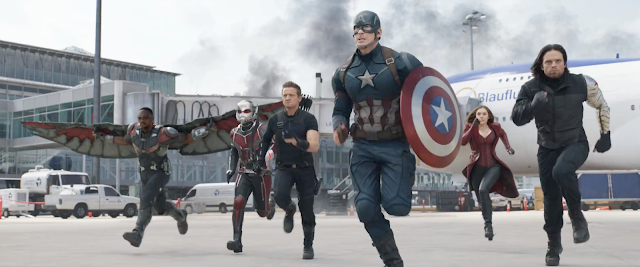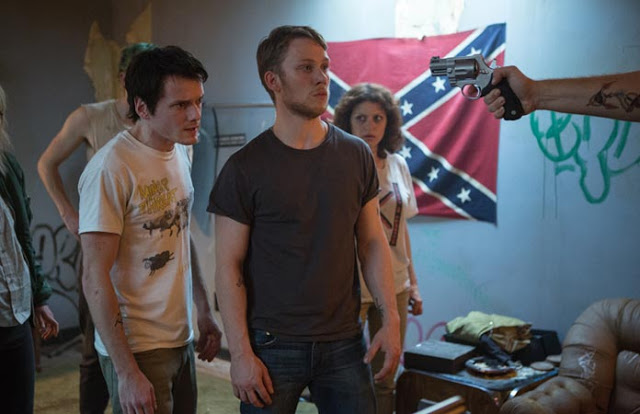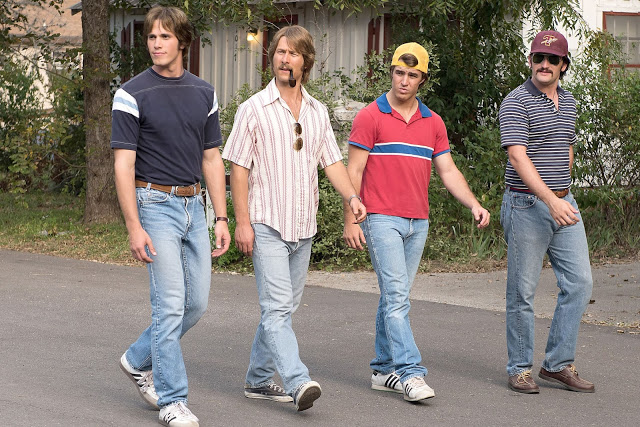The Nice Guys: Reluctant Heroes Shoot Off Their Mouths, Their Pistols
Shane Black loves misfits. His screenplay for Lethal Weapon spawned countless derivative buddy-cop movies, but its heart lay in the fragile eccentricity that made Mel Gibson’s Martin Riggs such a dashing and dangerous hero. His script for The Last Boy Scout paired two fallen losers—a disgraced ex-Secret Service agent (Bruce Willis) and a former football star (Damon Wayans)—then watched with glee as they stumbled into a ludicrous plot involving illegal sports gambling. And Kiss Kiss Bang Bang, his directorial debut, starred Robert Downey Jr. as a hapless unemployed actor whose motor-mouthed speech was exceeded in speed only by the bullets whizzing past him. All three movies indulge in hard-boiled genre thrills—double-crosses, overbaked conspiracies, larger-than-life villains—but they’re elevated by a writer’s true love for his characters and his words. Now, Black is back with The Nice Guys, a caper-comedy that both exposes the director’s worst tendencies and showcases his unique brilliance.
The flaws of this disposable, delightful film are obvious. It’s too long, its action is dull, its violence is pointless, and its plotting is simultaneously overcomplicated and undercooked. With a different director, these deficiencies might be crippling, but with Black (who shares scripting duties here with Anthony Bagarozzi), they’re trivial. You don’t watch The Nice Guys to see what happens next. You watch The Nice Guys to hang out with the nice guys. Read More

